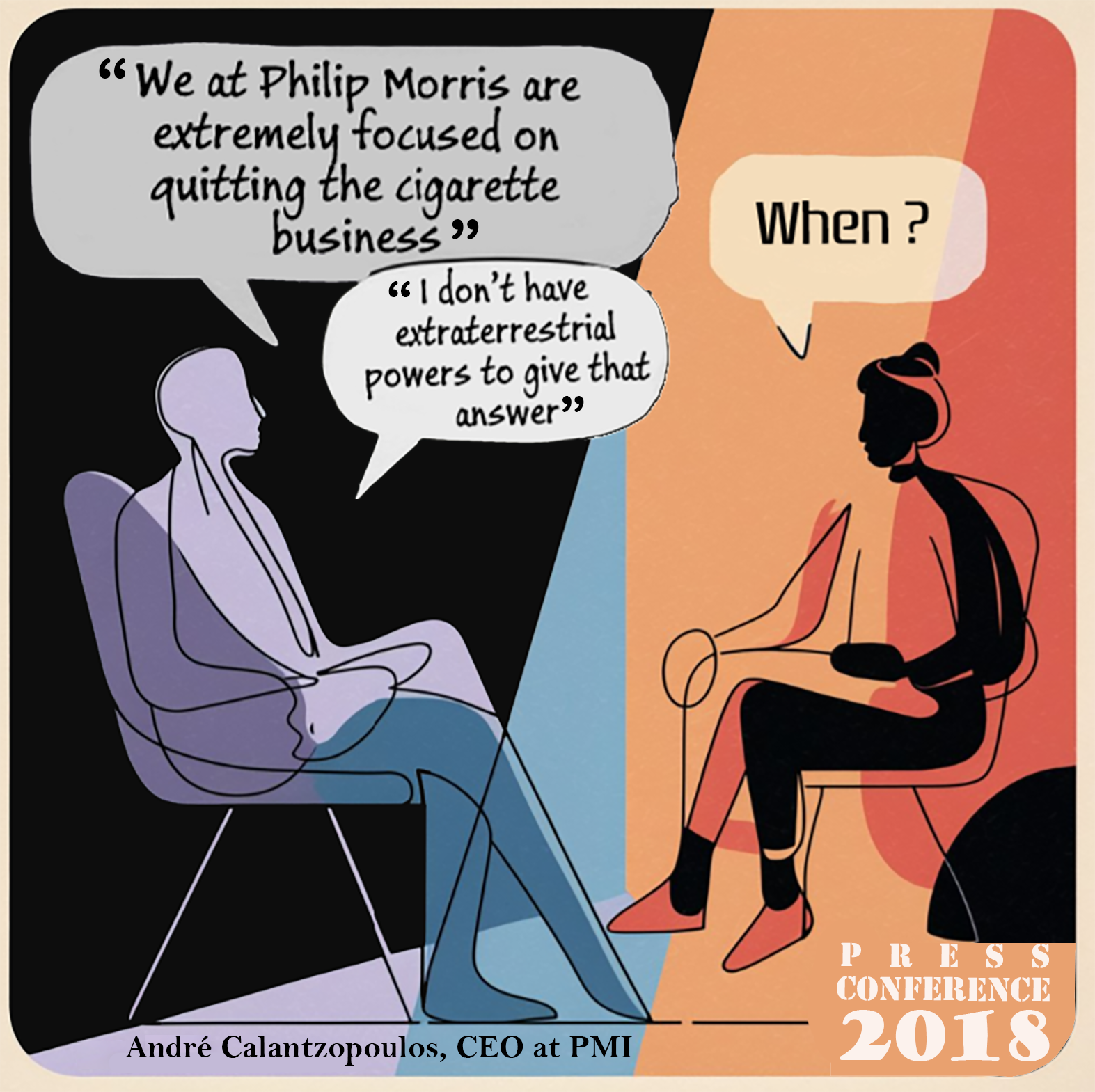Numbers at annual shareholder meeting belie rebranding attempts
STAMFORD, CT – In 1954, an executive of Philip Morris International (PMI) claimed that “[I]f we had any thought or knowledge that in any way we were selling a product harmful to consumers, we would stop business tomorrow.”
In 1972, a PMI executive claimed that “if our product is harmful, we’ll stop making it.”
In 2023, PMI claimed in its annual report that, “We don’t need to imagine a future without cigarettes. We are delivering one.”
Yet the numbers presented to shareholders on Wednesday (May 8) tell a very different story: cigarettes remain a critical part of PMI’s business, and the corporation continues to invest in cigarette advertising and infrastructure. In particular:
- Nearly two-thirds of PMI’s total net revenues (63.5%) are from the sale of traditional cigarettes. The rest are from other tobacco and nicotine products.
- PMI holds 24% of the international cigarette market. Marlboro, the most-sold cigarette brand in the world, has increased its market share from 9.2% to 9.8% in the last decade.
- PMI continues to invest in cigarette production, including the building of a new cigarette factory in Tanzania.
*Original graphics on the above are available here.*
“We cannot forget that PMI has spent more than 70 years lying and manipulating people for money,” said Daniel Dorado, tobacco campaign director at Corporate Accountability. “Since tobacco executives can no longer deny the danger of cigarettes, they’re attempting to distance themselves and rebrand their industry. But the truth is they continue to get rich from selling cigarettes and other harmful tobacco and nicotine products. Profit is and has always been their primary concern – even at the expense of people’s lives.”
When asked on Wednesday how the corporation squares its increasing reliance on Marlboro sales with its publicly stated goal of moving away from cigarettes, executives were clear that they intend to maintain their market share of cigarettes.
Advocates on Wednesday also addressed the fact that, contrary to its promises, PMI continues to market traditional cigarettes in countries where it has introduced its emerging tobacco products.
There is also ample evidence that PMI is still marketing cigarettes to children, especially in Global South countries.
“For decades, people around the world have come together to protect youth from Big Tobacco’s abuses. Now, we are at a pivotal moment to prevent corporations like PMI from addicting another generation to tobacco and nicotine, no matter the form. To do so, we must make Big Tobacco pay for its past abuses, and prevent it from wreaking more damage on people and the planet,” said Dorado.
###
Contact [email protected] for more information.




